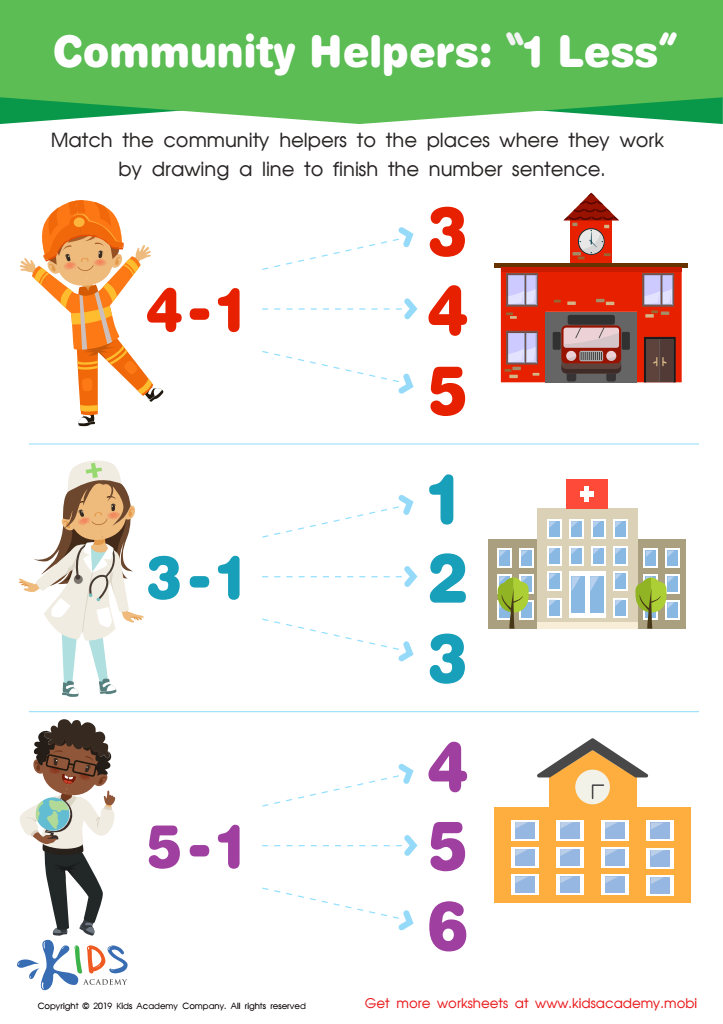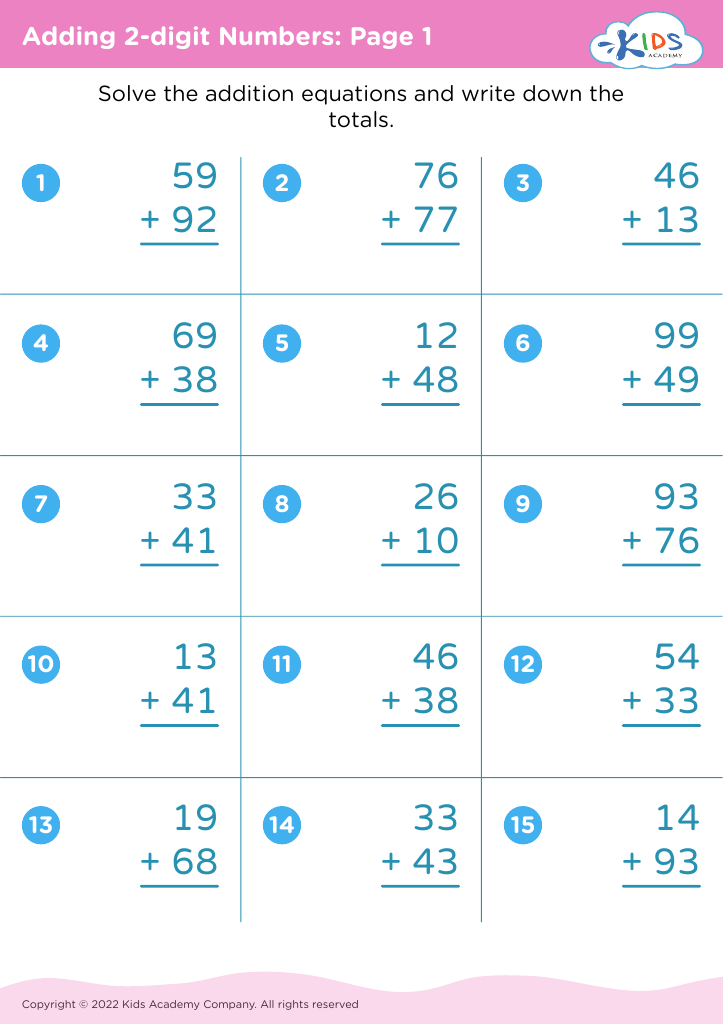Recognizing numbers Addition Worksheets for Ages 4-8
4 filtered results
-
From - To
Welcome to our "Recognizing Numbers Addition Worksheets" designed specifically for children aged 4-8! These engaging worksheets combine fun and education, helping young learners enhance their number recognition and basic addition skills. Our activities promote an interactive learning experience, featuring colorful illustrations and age-appropriate challenges that make math enjoyable. As children practice, they’ll gain confidence in identifying numbers while mastering simple addition concepts. Perfect for home or classroom use, these worksheets encourage a solid foundation in math by blending playfulness with essential learning. Start your child on their math journey today and watch them enjoy counting and adding with ease!


Community Helpers: 1 less Worksheet
Recognizing numbers and mastering addition are foundational skills for children aged 4-8, serving as key building blocks for their overall mathematical development. At this age, children begin to explore the concept of numbers, which is crucial for their cognitive growth. Activities that involve recognizing numbers help enhance their visual perception, memory, and critical thinking skills. Addition introduces them to basic arithmetic, fostering logical reasoning and problem-solving abilities that are essential in everyday life.
Parents and teachers play a vital role in this developmental phase. Engaging children in fun, interactive activities like counting games, number songs, and simple addition exercises can spark their enthusiasm for math. Early intervention works to strengthen these skills and build confidence, enabling children to tackle more complex concepts in the future.
Furthermore, numeracy skills promote academic success across subjects, as math is intertwined with various aspects of learning. By emphasizing the importance of number recognition and addition, parents and teachers can cultivate a positive attitude towards mathematics, setting the stage for lifelong learning. Ultimately, investing time in these foundational skills leads to a well-rounded education, preparing children for future academic challenges.




 Assign to My Students
Assign to My Students






.jpg)












